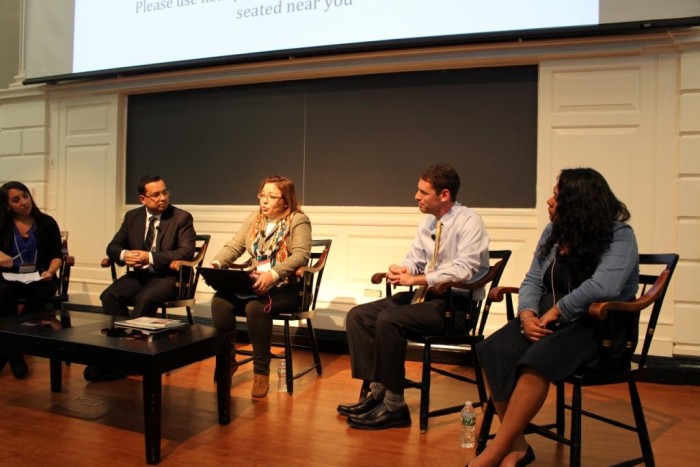Directors from the Claver Network, which encompasses the Development Offices of the Jesuit Provinces and Networks in Latin America and the Caribbean, met for their annual meeting in Rio de Janeiro, Brazil from August 28 to September 1. Among the topics discussed were best practices in international cooperation, a sharing of country-level fundraising experiences, and planning for the next triennium of work (2024-2026). At the conclusion of the Assembly, a new coordinator team was elected made up of representatives from Brazil, Peru, Cuba, and Mexico.
The Claver Network, which takes its name and inspiration from St. Peter Claver, was founded in 2009 in response to Father General Adolfo Nicolás Pachón SJ’s call to promote the creation of Development Offices in each of the Provinces and Regions that make up the Conference of Provincials of Latin America and the Caribbean (CPAL). The network brings together representatives from different countries with the common objectives of strengthening ties, sharing knowledge, and planning a future of collaboration and even more significant impact.

To that end, one of the most interesting moments of the meeting was the sharing of fundraising experiences from each participant. Each director shared their province or network’s organizational model, successful experiences in fundraising, and challenges they have faced or foresee occurring in the future. The experience allowed for a fruitful discussion and allowed for countries to identify their commonalities and where they can learn from each other.
Following the first three days of work, the network held its Assembly to elect a new coordinator team, which will be charged with developing a three-year work plan. Leading the network for 2024-2026 will be representatives from Brazil (Luciana Mendes), Cuba (Any Laura Díaz), Mexico (Jorge Rosas), and Peru (Gianfranco Dulanto).
Participating were member representatives from Development Offices of Central America, Bolivia, Chile, Mexico, Ecuador, Peru, Cuba, Paraguay, Venezuela and Brazil, as well as the International Federation of Fe y Alegría. Additionally, the meeting counted on the presence of Fr. Rafael Garrido SJ (CPAL President), Fr. Mieczyslaw Smyda SJ (Brazil Provincial), Fr. Alex Pizarro SJ (Haiti), and Nate Radomski (Magis Americas Executive Director).
The five days of meeting, full of productive working sessions, helped to build the network’s common mission. The date and location of the next meeting is to be determined.


